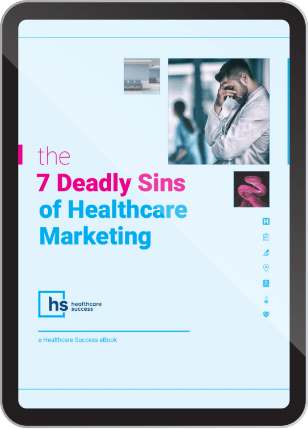Fishing Where the Fish Are: HARO and Hospital Marketing
 HARO—the Help a Reporter Out online service—can be a useful tactic for hospital marketing. But it usually takes a bit of perseverance and creativity to get to the pay-off.
HARO—the Help a Reporter Out online service—can be a useful tactic for hospital marketing. But it usually takes a bit of perseverance and creativity to get to the pay-off.
The concept is great…sort of a speed dating approach to research and background info for reporters. HARO is a free (or tiered fee), crowdsourcing platform where reporters can find expert resources for news stories and feature items. Hospitals, businesses, public relations professionals are all invited to the ongoing media mash-up and search stream of topics.
Everyone’s an expert at something.
Here’s how HARO describes itself to SOURCES: “From The New York Times, to ABC News, to HuffingtonPost.com and everyone in between, nearly 30,000 members of the media have quoted HARO sources in their stories. Everyone’s an expert at something. Sharing your expertise may land you that big media opportunity you’ve been looking for.”
And for REPORTERS, the pitch is: “Qualified sources, on demand! Tap into the world’s largest source repository with over 200,000 Main Street and expert sources responding directly to your query on your terms.” This is where they can find people who are germane to their story for background, advice and quotes for publication.
For PR professionals and hospital communicators, the trouble with HARO is that opportunity seldom drops in your lap. Here are a few tips to keep in mind:
Fish where the fish are. Although the HARO pond is restocked constantly with reporter queries, there’s no guarantee that you, your hospital or your expert resource will fit the need. In short, apply perseverance. This is where the fish are, but you might not catch anything today. Come back often.
Think creatively about a reporter’s query. Make an inventory of potential experts and sources that you can call on. Yes, the hospital medical director is an expert surgeon, but she might also be a rider in the Tour de France, or a volunteer doctor for international charity work. The point is, your connecting point may be indirect and still lead to a worthy media opportunity.
Stay on topic (and no spam of course). Stick with the needs of the reporter…and if you’ve got a fit and can meet their need, pitch it. But a reporter will quickly reject answers which are not responsive, and they’ll resent an effort to spin a misfit answer to their topic.
Historically, “reporters and sources” have been courting each other for decades, and HARO answered this need a few years ago. Other systems have not been as successful, in part, we suspect, because HARO is owned by Vocus…the company that owns other familiar names: PRWeb and iContact.
Previous articles related to this topic include, Publicity Hitchhiking: Offer Your Local Expert Voice for National Healthcare Headlines, and How to Irritate an Editor, and THE Essential Key to a Successful Healthcare PR News Release.








